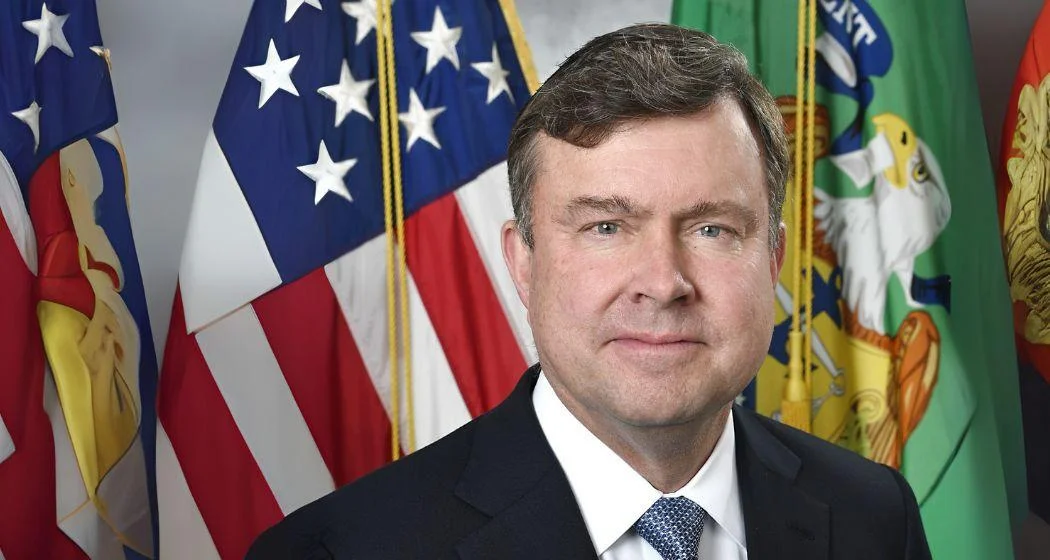The U.S. Department of the Treasury’s Office of Foreign Assets Control (OFAC) has imposed sanctions on 32 individuals and entities from Iran, the United Arab Emirates, Türkiye, China, Hong Kong, India, Germany, and Ukraine. These parties are accused of operating procurement networks that support Iran’s ballistic missile and unmanned aerial vehicle (UAV) production.
“Across the globe, Iran exploits financial systems to launder funds, procure components for its nuclear and conventional weapons programs, and support its terrorist proxies,” said Under Secretary of the Treasury for Terrorism and Financial Intelligence John K. Hurley. “At the direction of President Trump, we are putting maximum pressure on Iran to end its nuclear threat. The United States also expects the international community to fully implement UN snapback sanctions on Iran to cut off its access to the global financial system.”
The Treasury Department stated that these networks threaten U.S. and allied personnel in the Middle East as well as commercial shipping in the Red Sea. The action is part of efforts following the September 27, 2025 reimposition of United Nations sanctions on Iran due to ongoing non-compliance with international commitments.
The new measures are aligned with National Security Presidential Memorandum 2, which instructs U.S. agencies to limit Iran’s missile program and deny resources to groups like the Islamic Revolutionary Guard Corps (IRGC).
Sanctions were issued under Executive Orders 13382 and 13224. The former targets proliferators of weapons of mass destruction while the latter addresses terrorist groups and their supporters.
Among those targeted is a multinational procurement network known as the “MVM partnership.” Since 2023, this group has coordinated shipments of ballistic missile propellant ingredients from China for Parchin Chemical Industries (PCI), a part of Iran’s Defense Industries Organization (DIO). Both PCI and DIO have previously been sanctioned by OFAC and are subject to asset freezes under United Nations Security Council Resolutions.
Three individuals—Marco Klinge in the UAE, Majid Dolatkhah in Iran and Türkiye, and Vahid Qayumi in Iran and Türkiye—were identified as key figures in this network. Companies linked to them in India, Germany, UAE, and Iran were also sanctioned for facilitating or supporting these activities.
OFAC is also targeting people connected with Kimia Part Sivan Company (KIPAS), which works with IRGC-QF on UAV development. KIPAS subsidiaries have produced UAV components since at least early 2025. Several employees associated with these efforts were named in today’s designations.
Another focus is Oje Parvas Mado Nafar Company (Mado), an Iranian firm producing engines for Shahed-series UAVs used by Iranian forces. A China-based individual named Ma Jie was designated along with his companies in China and Hong Kong for facilitating business between Mado and suppliers abroad.
Additionally, OFAC sanctioned parties involved in supplying aerospace materials to Iran Aircraft Manufacturing Industrial Company (HESA), a state-owned producer of military aircraft including Ababil-series UAVs.
The Treasury updated records related to a vessel now called HONESTAR after it was found attempting to deliver sensitive machinery—specifically CNC equipment used for guidance systems—to Iran's defense industry while stateless.
As a result of these actions, all property belonging to designated persons within U.S. jurisdiction is blocked. U.S. persons are generally prohibited from conducting transactions involving such property unless authorized by OFAC or exempted by law. Violations may lead to civil or criminal penalties for both U.S. citizens and foreign nationals involved.
OFAC noted that engaging with designated persons could expose foreign financial institutions to secondary sanctions affecting their operations within the United States.
“The power and integrity of OFAC sanctions derive not only from OFAC’s ability to designate and add persons to the SDN List, but also from its willingness to remove persons from the SDN List consistent with the law. The ultimate goal of sanctions is not to punish, but to bring about a positive change in behavior,” according to official guidance.





